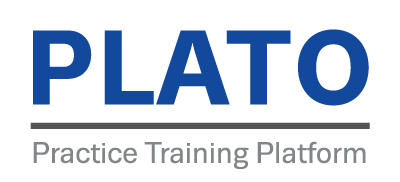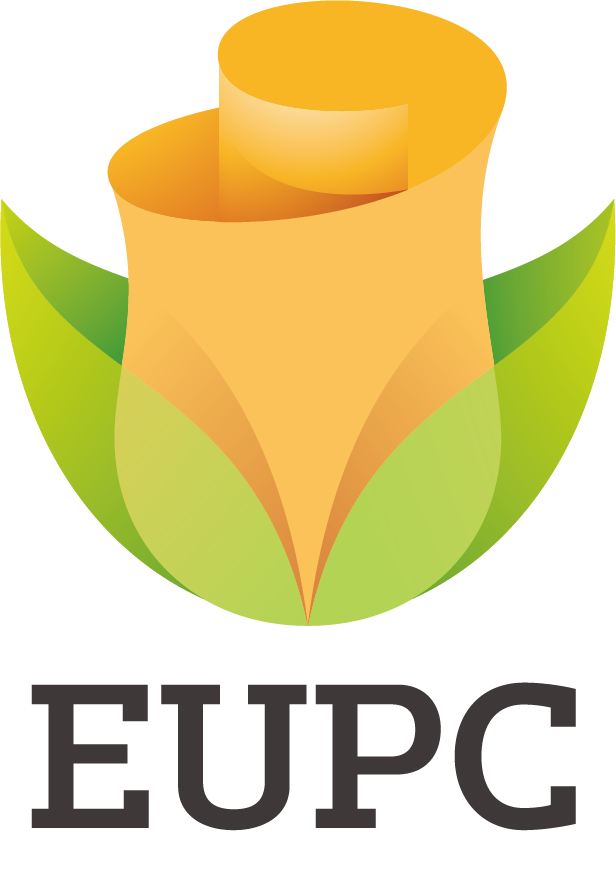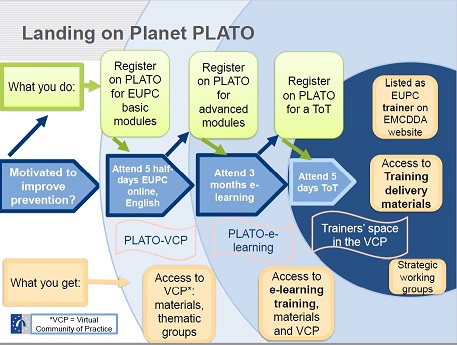THE EMCDDA PLATO PLATFORM
NB: Access to PLATO is restricted to people who already did or currently do an EUPC training. A certificate of attendance of an EUPC training signed by an EUPC trainer can be sent to Ten adres pocztowy jest chroniony przed spamowaniem. Aby go zobaczyć, konieczne jest włączenie w przeglądarce obsługi JavaScript. in order to request access to PLATO.
PLATO is designed to facilitate online training, e-learning, and discussion through a virtual community of practice (VCP) for the EUDA.
At present, PLATO hosts the European Prevention Curriculum (EUPC) for decision-, opinion- and policymakers (DOPs) at local or regional level, a program launched by the EMCDDA in 2019.
In near future, the platform will also offer training and support modules to frontline prevention staff (EUPC-Politeia), and to practitioners and decision-makers in other areas than prevention, such as treatment and harm reduction.
PLATO is intended to enable faster, broader, and virtual access to scientific content, active stakeholder involvement in the production and use the content, and facilitate the sharing of experiences.
For more information about the EUPC and its implementation visit the dedicated page.
In order to be admitted for an e-learning course in PLATO about the advanced modules of EUPC, participants must first complete the first two (of five) EUPC basic modules, either as face-to-face training or online, directly on PLATO.
The graph below shows the progressing steps of EUPC training within PLATO.
Please see the list of National trainers HERE.
Note that the EUPC has been designed and adapted for a European context. While anyone fulfilling the minimum criteria can attend the EUPC basic modules, the EUPC training themselves can only be rolled out as training offered to countries beyond Europe after a careful cultural and contextual adaptation of the materials. This process is currently ongoing for EU neighborhood and CELAC countries.
After completing the basic modules, three (advanced) modules on science-based prevention can then be followed in a self-directed way via the platform, without the need to travel, and at one’s own pace (video lectures are also recorded, for catching up later).
Participants who register on the platform will also be able to access a wide range of interactive content such as live video lectures, training materials for self-development, individual and group tasks, and exercises.
The Virtual Community of Practice (VCP) within PLATO is intended as a forum for EUPC-trained professionals, for exchanging practices, experiences, and real-life challenges.
|














